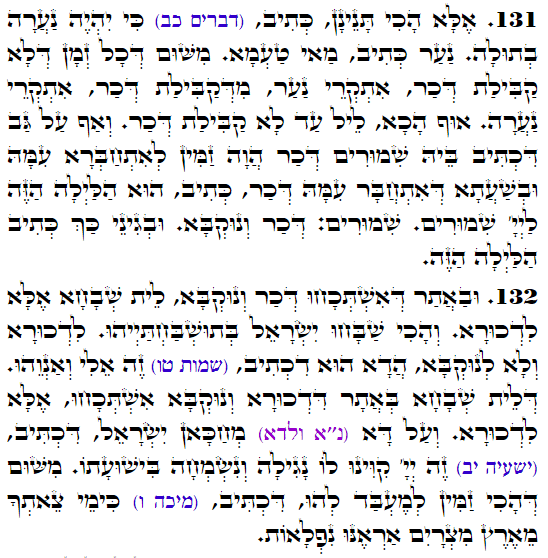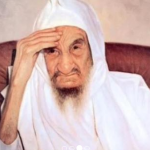Daily Zohar # 3839 – Bo – Unification for blessings
Daily Zohar 3839

Hebrew translation:
132. וּבְמָקוֹם שֶׁנִּמְצְאוּ זָכָר וּנְקֵבָה אֵין שֶׁבַח אֶלָּא לַזָּכָר. וְכָךְ שִׁבְּחוּ יִשְׂרָאֵל בְּתִשְׁבְּחוֹתֵיהֶם לַזָּכָר וְלֹא לַנְּקֵבָה, זֶהוּ שֶׁכָּתוּב (שמות טו) זֶה אֵלִי וְאַנְוֵהוּ, שֶׁאֵין שֶׁבַח בְּמָקוֹם שֶׁזָּכָר וּנְקֵבָה נִמְצָאִים אֶלָּא לַזָּכָר. וְעַל זֶה (וְלָזֶה) מְחַכִּים יִשְׂרָאֵל, שֶׁכָּתוּב (ישעיה כה) זֶה ה’ קִוִּינוּ לוֹ נָגִילָה וְנִשְׂמְחָה בִּישׁוּעָתוֹ. מִשּׁוּם שֶׁכָּךְ עָתִיד לַעֲשׂוֹת לָהֶם, שֶׁכָּתוּב (מיכה ז) כִּימֵי צֵאתְךָ מֵאֶרֶץ מִצְרָיִם אַרְאֶנּוּ נִפְלָאוֹת.
.

This study is dedicated to the honor of Rabbi Yisrael Abuchatzeira, the Baba Sali.
By the merits of our fathers, Abraham, Isaac, and Jacob with the merits of the Baba Sali, may Hashem accepts our prayers and bring healing and peace to all children of Isarel and the entire world.
Read more: https://dailyzohar.com/tzadikim/157-Rabbi-Yisrael-Abuchatzeirah
.
Zohar Bo
Continued from previous DZ
#131
The Zohar looks at the following verse to explain the previous two forms of the word for ‘Night,’ ‘ליל,’ and ‘לילה.’
Deuteronomy 22:23
“כִּי יִהְיֶה נער [נַעֲרָה] בְתוּלָה מְאֹרָשָׂה לְאִישׁ וּמְצָאָהּ אִישׁ בָּעִיר וְשָׁכַב עִמָּהּ.”
“If a young woman who is a virgin is betrothed to a husband, and a man finds her in the city and lies with her,”
The word for a young woman in this verse is spelled without the letter ה, but it is read in a complete form, which is with the letter ה as we see in the square brackets in this verse. The Zohar explains that ‘נער’ refers to a young, virgin woman before receiving the male. After she has unification with a male, she is called ‘נערה,’ accepting the letter ה.
It is the same with the word ‘night’ ‘ליל’ (night of observance). The Malchut is called ‘ליל’ before the connection to Zeir Anpin is made. And when Malchut and Zeir Anpin are together, we read;
“הַלַּיְלָה הַזֶּה לַיהוָה שִׁמֻּרִים,” “this night (לילה) is for YHVH, to be observed.” The word ‘שִׁמֻּרִים’ ‘Observance’ is in the plural form to indicate that there is a connection of male, Zeir Anpin, and female, Malchut.
#132
Whenever male and female are together, the praise goes to the male, and Israel makes their praises in a male form, not female. As it is written in the Song of the sea;
Exodus 15:2
“עָזִּי וְזִמְרָת יָהּ וַיְהִי לִי לִישׁוּעָה זֶה אֵלִי וְאַנְוֵהוּ אֱלֹהֵי אָבִי וַאֲרֹמְמֶנְהוּ.”
“The Lord (יָהּ) is my strength and song, And He has become my salvation; He is my God, and I will praise Him; My father’s God, and I will exalt Him.”
The praise is raised when male and female together but refers to the male. And this is what Israel is waiting for, which is written;
Isaiah 25:9
“וְאָמַר בַּיּוֹם הַהוּא הִנֵּה אֱלֹהֵינוּ זֶה קִוִּינוּ לוֹ וְיוֹשִׁיעֵנוּ זֶה יְהוָה קִוִּינוּ לוֹ נָגִילָה וְנִשְׂמְחָה בִּישׁוּעָתוֹ.”
“And it will be said on that day: “Behold, this is our God; We have waited for Him, and He will save us. This is YHVH; We have waited for Him; We will be glad and rejoice in His salvation.”
The joy is because he is going to redeem us, as it is written;
Micha 7:15
“כִּימֵי צֵאתְךָ, מֵאֶרֶץ מִצְרָיִם, אַרְאֶנּוּ, נִפְלָאוֹת”
“As in the days of your coming forth out of the land of Egypt will I show him wonders.”
Lesson;
The female is Malchut, where the Light of the unification with the male, Zeir Anpin, manifests. Without the female, there is no blessing because there would be no fruition and continuation in this world. We read in Genesis 1:27, “male and female created He them.” Adam is the aspect of Zeir Anpin and Eve, the female, Malchut,” then in the next verse, it says, “And God blessed them.”
It tells us that the blessing comes after the unification.
We praise the male because it is the channel that delivers the Light to Malchut for manifestation. If the male is not drawing Light to the female, there is an end and death.
This is an important spiritual principle. Our desires, plans, goals have the aspect of the vessel. When we act on the desire, we draw Light that ‘animates’ the vessel and brings it to life, which is the aspect of blessing. If we want something, we create a vessel. If we don’t act upon it to draw Light into the vessel, then the vessel is dead. When we create a vessel, the Light above is ready to be delivered, awaiting our actions. If we don’t make the proper connection, we lose that Light to the other side.
Before we pray or do any positive action, we meditate to unify the Light, YHVH, with the vessel that is the desired outcome.
{||}

 Previous: Bo
Previous: Bo
